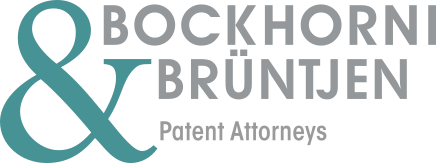The Unitary Patent and the Unified Patent Court Agreement (UPC) are about to enter into force.
The Unitary Patent is a “European patent with unitary effect” for all participating member states, the registration of which can be applied for after the grant of a European patent. The granting procedure is thus identical to the current granting procedure for European patents.
The newly created Unified Patent Court will have exclusive jurisdiction for litigation (e.g., infringement or invalidity actions) concerning Unitary Patents and for classical European patents.
- Start Date
The Federal Republic of Germany has ratified the UPC Agreement on February 17, 2023. The entry into force of the UPC Agreement is June 01, 2023. A roadmap at www.unified-patent-court.org reflects the current state of the UPC.
- Member Countries
There are twenty-four EU Member States which have signed the Agreement on a Unified Patent Court (UPCA). However, initially, the UPCA will be in force in the seventeen states which will have ratified the UPCA. Amongst them:
Austria, Belgium, Bulgaria, Denmark, Estonia, Finland, France, Germany, Italy, Latvia,
Lithuania, Luxembourg, Malta, Netherlands, Portugal, Slovenia, Sweden
The remaining seven EU Member States which have signed but not yet ratified the UPCA may do so at any time. They are:
Cyprus, Czech Republic, Greece, Hungary, Ireland, Romania, Slovakia
EU Member States which have not signed the UPCA may still accede to it at any time. They are:
Croatia, Poland, and Spain
- Options for Proprietors of European Patents
You can Opt-Out your European Patents from the new Court system, if you do not wish a central invalidity attack. However, keep in mind that you will have to enforce your European patent after an opt-out in each country individually at a local court, as usual.
The Opt-Out can be declared early within the three-months “Sunrise Period” starting on March 01, 2023 and ending on May 31, 2023. During the sunrise period, no central attack is yet possible against your European patent. Opting out is also possible after May 31, 2023.
- Options for Proprietors of European Patent Applications
- Early request for unitary effect
Starting from January 01, 2023 a so-called “early request” for unitary effect for Unitary Patents can be filed. Early requests for unitary effect can only be filed for European patent applications which have been the subject of a communication under Rule 71(3) EPC. The “early request” must be filed when settling the R. 71 (3) EPC communication.
Hereby, the Applicant ensures for his European patent that a patent with unitary effect will take effect in the participating member states.
- Request for postponement of the decision on the grant of the patent
As an alternative to point 1 above, it is possible to request a postponement of the decision on the grant of the European patent in response to the communication under R. 71(3) EPC. This request ensures that the European patent will not be granted until on or after the date of entry into force of the Regulation on the Unitary Patent. Registration as a Unitary Patent can then be requested for the later granted European patent.
- Early opt-out
You may opt out of the exclusive jurisdiction of the Unified Patent Court with respect to your European patent application for the entire term of the patent. This is only possible if no action has been brought before the UPC.
- Request for unitary effect
If you wish to obtain a Unitary Patent covering all participating member states, you must file a request for unitary effect. The request must be filed no later than one month after the mention of the grant of the European patent is published in the European Patent Bulletin.
Without a request for unitary effect, your European bundle patent (“classical” EP) will be subject to both jurisdictions, i.e., both to the Unitary Patent Court and to the national courts.
If you have any questions, please do not hesitate to contact us.
February 20, 2023
Vanessa Bockhorni
Patent Attorney
